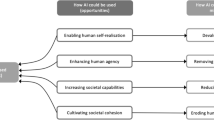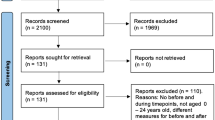Abstract
Public health and pandemic ethics frequently concern themselves with organizing principles, utility, and public policy. But the effects of pandemics, and the impact of measures to control them, are experienced by individuals and families. This is particularly true for those who are most vulnerable to COVID-19—the elderly and “infirm.” So while ethics must assist in articulating the policies that will determine the allocation of resources during this and future pandemics, it must, at the same time, be alert to the intimate narratives of the infection. This is an account from someone looking down the muzzle of COVID-19.
Similar content being viewed by others
COVID-19 poses a threat to us all but especially to those who, like myself, have multiple comorbidities and are pushing on our seventh decade. The way we respond to such threats is a function of our personal traits as much as our training and experience. One of the surgeons who trained me used to say that surgery was not about what you could “get away with” but what you could reliably and repeatedly do with a consistently good outcome. My own inclination was to be more adventurous and I tended to push the boundaries of what we could do for our patients. The global experience of COVID-19 has, I think, supported his recommendation. The “safety first” response that has generally been taken to this crisis, including in my own country, has, for a person at high risk of morbidity and mortality from COVID-19, such as myself, been vastly reassuring. But I realize, of course, that the impact of COVID-19 is experienced communally as well as individually, bio-psychosocially as well as biomedically and that the risks posed to our economy, mental health, and quality of life must also be taken account of in our efforts to control the pandemic. Older compromised people such as myself have to be restrained about our self-advocacy and if we have to take our chances in the general interest of the population when it is considered from multiple possibilities—so be it.
This stance is, however, very individualistic and pays little attention to the ties that bind us to our families and to the friends who love us. When we approach a situation such as the present crisis not from an atomistic position but from a perspective that takes into account the multiple relationships of which each of us is a part, things start to look a little different. In my own case there are five lives which would be closely affected by my death—leaving aside any ripples of academic interest which my ongoing work may yet inspire. While the latter is difficult to be realistic about, the possible impact of my passing on related lives cannot be set aside without a thought. The five lives that are closely related to my own may be hedonically affected in various ways but somehow the ethical import of my passing is not solely comprised of such effects and would have other reverberations. For my own part I would tend to characterize my passing as a reverberation or ripple running through the human community in a way which is difficult to calculate. But voices other than my own may be able to evoke these reverberations in more telling ways than I can, and these should not be set aside in the ethical calculation, if that can be so described.
We are prone to want matters of ethics to conform to a rational calculus of some kind—but that is perhaps to miss the point. Ethics is one of a number of reverberations or rhythms of life that include music, reminiscence, attachment, and loyalty, and each one of these is moving in ways which are difficult to quantify or be austerely rational about. I myself have always favoured one or more fuzzy ethical theories with connections to virtue and emotion and the attachments of one human being to others. While there is a certain kind of calculation surrounding policymaking during the COVID-19 pandemic that might aim to rank health and morbidity along with other factors affecting both, this task is not so easily done as each of our lives is at the meeting point of a number of incommensurable axes. These axes cross areas of thinking such as health and disease, mental well-being, social cohesion, the just treatment of all individuals, and the value of human life of whatever age. Each is difficult to calculate and each is vital to our humanity and that of those who love us and none of these axes can be omitted from our thinking.
We have to meet this present crisis as we would meet anything that involves the whole of humanity, that is, with care and a keen ability to value those things which are of value and to have a feel for what their value amounts to. To try to “do” ethics in a way that minimizes this dimension of our humanity and connectedness is to do an ethics which is eviscerated in a psychological sense and to do that is to fiddle while Rome burns. We all know the evident stupidity of such a course when viewed from the richer awareness that human beings bring to the world and their own lives. To ask those with whom I share the morbidities of the seventh decade of human life to take an entirely dispassionate and calculable approach to the COVID-19 crisis is perhaps the equivalent to asking turkeys to look forward to Thanksgiving. It is one thing to accept one’s imminent demise with courage and equanimity and totally another to develop ethical attitudes to oneself out of a sense of one’s own worthlessness because of age and infirmity.
Author information
Authors and Affiliations
Corresponding author
Additional information
Publisher’s note
Springer Nature remains neutral with regard to jurisdictional claims in published maps and institutional affiliations.
Rights and permissions
About this article
Cite this article
Gillett, G. COVID-19 Ethics—Looking Down the Muzzle. Bioethical Inquiry 17, 501–502 (2020). https://doi.org/10.1007/s11673-020-10027-6
Received:
Accepted:
Published:
Issue Date:
DOI: https://doi.org/10.1007/s11673-020-10027-6




